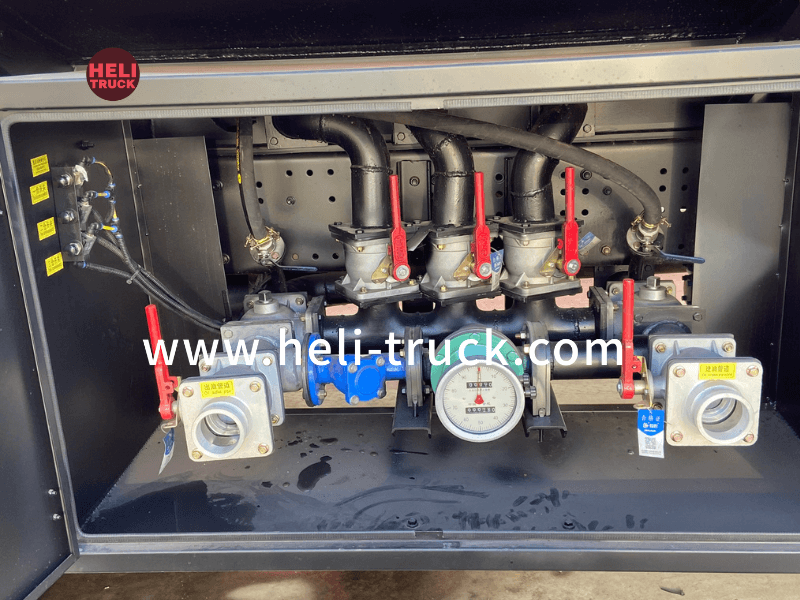The Weighty Matter of Garbage Compactor Trucks A Comprehensive Analysis

Introduction:
Garbage compactor trucks play a crucial role in waste management systems around the world. These specialized vehicles are designed to collect and compact waste efficiently, helping to reduce the volume of garbage and make transportation and disposal more cost-effective. One important aspect of garbage compactor trucks that often goes unnoticed is their weight. In this article, we will delve into the world of garbage compactor truck weight, exploring its significance, factors influencing it, and the implications for waste management operations.
Understanding Garbage Compactor Trucks:
Before delving into the weight aspect, it is essential to understand the basic functioning of garbage compactor trucks. These vehicles are equipped with a compactor mechanism that compresses the collected waste to maximize the space utilization within the truck. This process helps to reduce the number of trips required for waste collection and transportation, thus improving overall efficiency.
Garbage compactor trucks come in various sizes and configurations, ranging from small, rear-loading models used for residential waste collection to large, front-loading trucks employed for commercial and industrial purposes. The type and volume of waste being collected determine the size and capacity of the compactor truck required for the job.
Factors Influencing Garbage Compactor Truck Weight:

Several factors contribute to the overall weight of a garbage compactor truck. Understanding these factors is crucial for optimizing the performance and efficiency of waste management operations. Some of the key factors influencing the weight of compactor trucks include:
1. Chassis Type and Size:
The chassis of a garbage compactor truck forms the structural framework that supports the compactor unit and waste collection body. The material and design of the chassis impact the overall weight-bearing capacity of the truck. Larger trucks designed for heavy-duty commercial use tend to have sturdier chassis constructions to withstand the weight of compacted waste.
2. Compactor Mechanism:
The compactor mechanism of a garbage truck consists of hydraulic systems that compress the waste to reduce its volume. The weight of the compactor unit, including hydraulic cylinders, compacting plates, and associated components, adds to the overall weight of the truck. The efficiency and power of the compactor system also influence the weight-bearing capacity of the vehicle.
3. Waste Volume and Density:
The amount and type of waste being collected directly impact the weight of a garbage compactor truck. Denser waste materials, such as construction debris or industrial waste, will weigh more per unit volume compared to lighter household waste. The volume of waste collected in a single trip affects the total weight the truck can carry before requiring disposal.
4. Fuel and Fluids:
Garbage compactor trucks are powered by diesel engines that require fuel for operation. Additionally, hydraulic fluids are used to power the compactor mechanism and other hydraulic systems. The weight of fuel and fluids onboard the truck contributes to its overall weight and must be factored into load calculations for efficient operation.
5. Additional Features and Equipment:
Some garbage compactor trucks may be equipped with additional features such as lift mechanisms for waste bins, onboard scales for weighing loads, or safety systems for waste collection personnel. The weight of these extra features adds to the total weight of the truck and influences its performance during operation.
Implications of Garbage Compactor Truck Weight:
The weight of a garbage compactor truck has several implications for waste management operations, ranging from safety considerations to operational efficiency. Understanding https://www.heli-truck.com/garbage-compactor-truck/ is essential for optimizing the performance of compactor trucks and ensuring the safe and effective collection and disposal of waste. Some of the key implications of garbage compactor truck weight include:
1. Load Capacity and Efficiency:
The weight-bearing capacity of a garbage compactor truck determines the maximum amount of waste it can collect and transport in a single trip. Overloading the truck beyond its capacity can lead to safety hazards, increased wear and tear on components, and reduced fuel efficiency. Properly managing the weight of loads is critical for maximizing operational efficiency and minimizing costs.
2. Route Planning and Scheduling:
The weight of a garbage compactor truck influences route planning and scheduling for waste collection operations. Trucks with higher weight capacities may be able to cover larger service areas or collect more waste per trip, reducing the number of trips required and optimizing collection routes. Efficient route planning based on truck weight can help minimize fuel consumption and operational costs.
3. Maintenance and Upkeep:
The weight of a garbage compactor truck impacts its maintenance requirements and upkeep costs. Heavy loads and frequent compaction can strain the chassis, suspension, and hydraulic systems of the truck, leading to increased wear and potential breakdowns. Regular maintenance, including inspections of load-bearing components and fluid levels, is essential to ensure the safe and reliable operation of compactor trucks.
4. Environmental Impact:
The weight of garbage compactor trucks also has environmental implications, particularly in terms of fuel consumption and emissions. Heavier trucks require more fuel to operate, leading to higher carbon emissions and environmental pollution. Optimizing the weight of compactor trucks and adopting fuel-efficient practices can help reduce the environmental footprint of waste management operations.
Conclusion:
Garbage compactor trucks play a vital role in waste management systems, and their weight is a critical factor that influences performance, efficiency, and safety. By understanding the factors that contribute to truck weight and considering the implications for operations, waste management professionals can optimize the use of compactor trucks and enhance overall efficiency. Proper load management, route planning, maintenance practices, and environmental considerations are key aspects of managing garbage compactor truck weight effectively and ensuring sustainable waste management practices for the future.
